Reds vs. whites - the educated prevailed
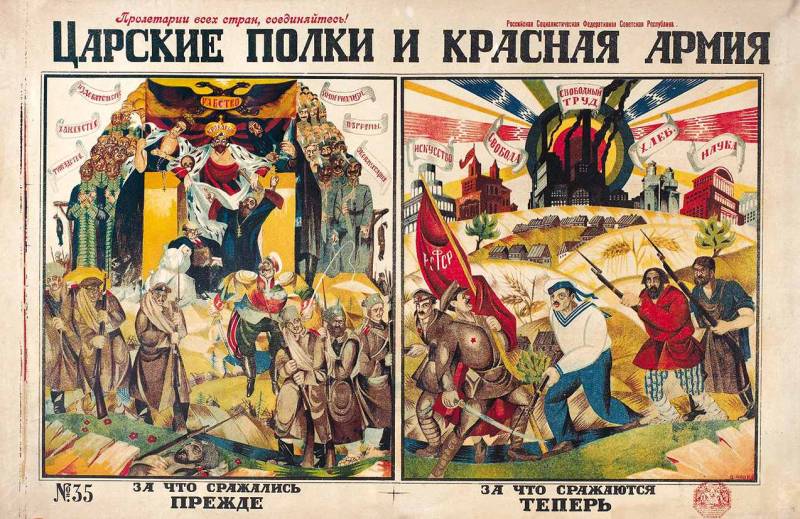
Fedor Fedorovich Raskolnikov
One of the most famous members of the RVSR, the revolutionary sailor Fyodor Raskolnikov, whose real name is Ilyin, on his mother's side, was a descendant of the hero of the Battle of Chesme Dmitry Ilyin. It was his fireship that set fire to the first of the Turkish battleships and laid the foundation for the defeat of the Turks.
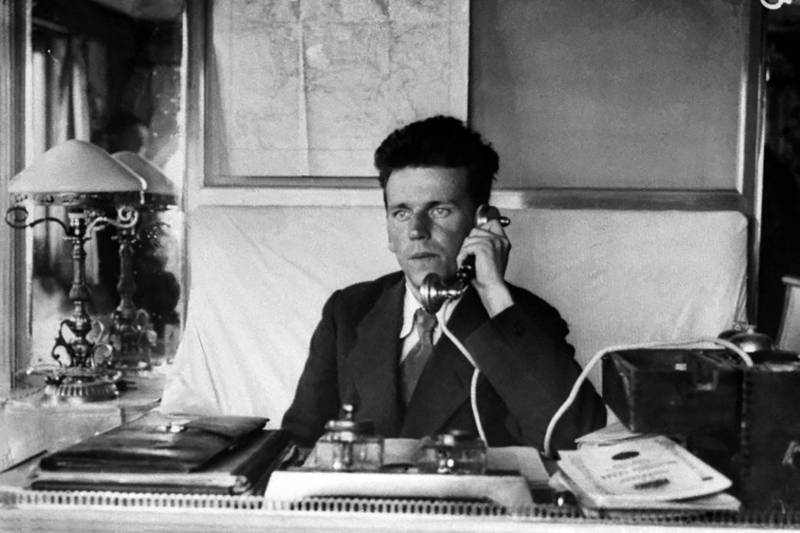
The future red commissar, and then one of Stalin's most famous opponents, was brought up in the orphanage of Prince Oldenburg. He studied, although without much success, as an archaeologist at the St. Petersburg Polytechnic University.
At the beginning of World War I, against which, as a Bolshevik, he actively opposed, he enrolled in separate cadet classes, which in fact saved him from the real experience of naval battles. In February 1917 he became deputy chairman of the Kronstadt Soviet, and in July he was arrested.
In the days of October, F. Raskolnikov participated in repelling the offensive of Krasnov and Kerensky on Petrograd and in the battles in Moscow. His authority in Tsentrobalt and Trotsky's sympathies predetermined the appointment of the sailor as Deputy People's Commissar for the Navy, and then as a member of the RVSR.
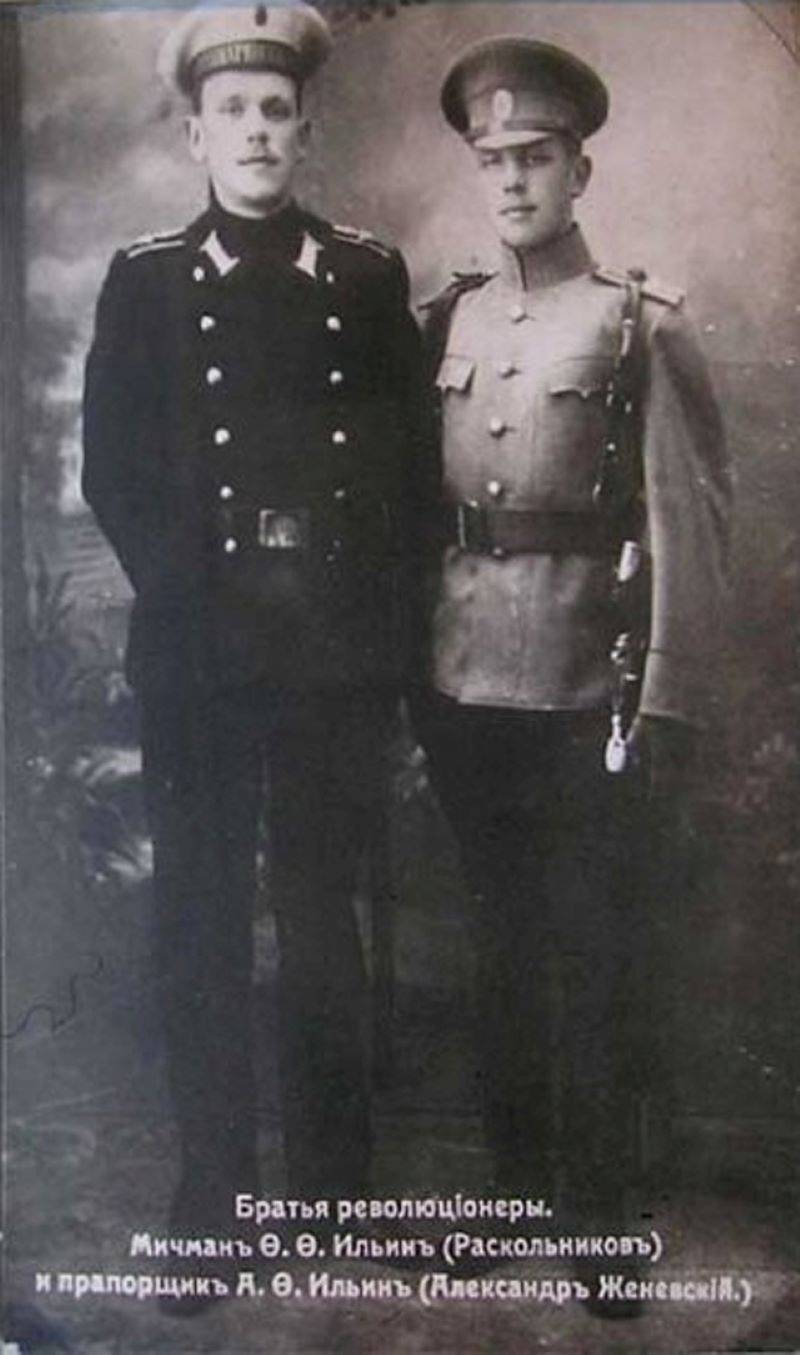
The brother of the sailor-revolutionary Alexander Ilyin-Zhenevsky, who took a pseudonym in the place of emigration, is best known as the organizer of chess life in the USSR. The legendary "chess fever", international tournaments and an invitation to Moscow for ex-world champions E. Lasker and X-R. Capablanca is his merit.
It remains to be recalled that this was not the sailor Zheleznyak or Dybenko at all, but F. Raskolnikov officially announced the withdrawal of the Bolsheviks from the Constituent Assembly, and then its dispersal. However, "the guard is tired, he didn't say.
Arkady Pavlovich Rozengolts
The son of a poor Vitebsk Jewish merchant Arkady Rozengolts enrolled in the Bolsheviks in 1905, when he was only 16 years old. Behind Rozengolts, who, unlike his fellow tribesmen, never used pseudonyms or party nicknames, at first there was participation in the leadership of the Moscow December uprising.
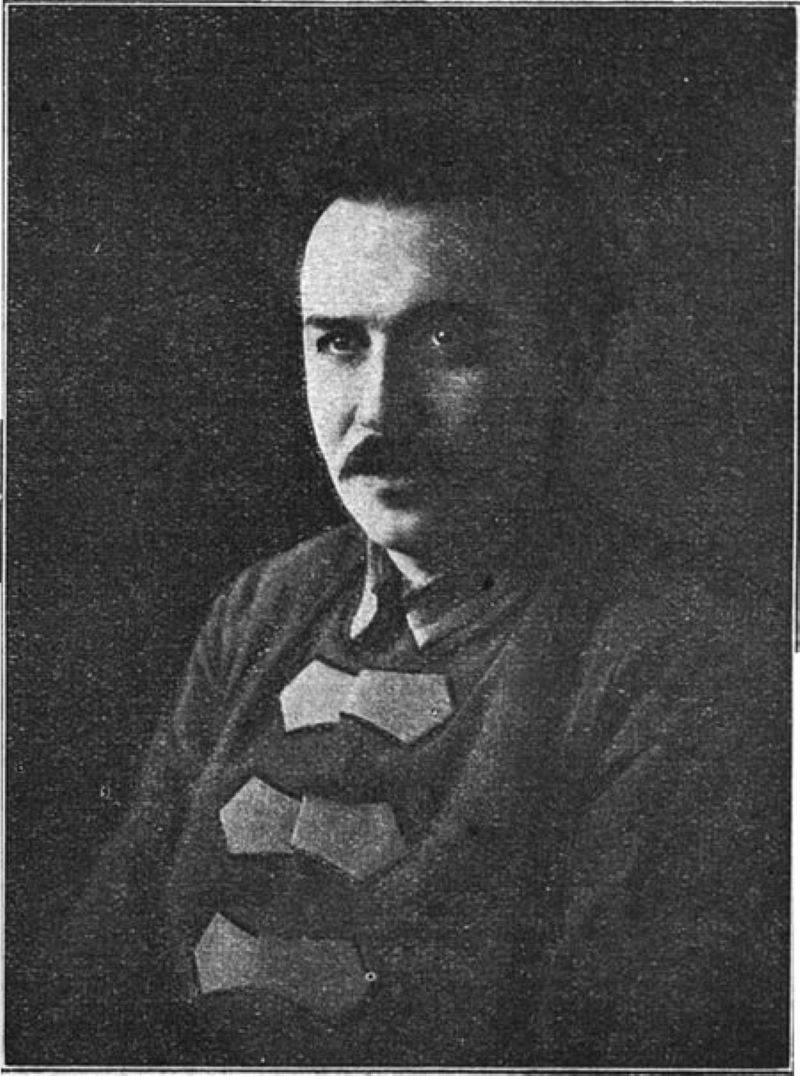
And only then did he study at the Kiev Commercial Institute, which, judging by open sources, he never finished. In Moscow, he once again participated in the battles - already in 1917, his main task was the formation of Red Guard detachments.
Rosengolts was not only listed, but also worked in several bodies of Soviet power at once, including, although for a very short time, in the Revolutionary Military Council of the Republic. Just in those days, the chairman of the RVSR Trotsky wrote the following to his address:
Alexey Ivanovich Rykov
Future Stalin Prime Minister Alexey Rykov, albeit, as is commonly believed, and temporary, was introduced to the Revolutionary Military Council of the Republic at the personal insistence of Lenin. This fact is not documented, but only by the memoirs of contemporaries, but I see no reason to dispute it.
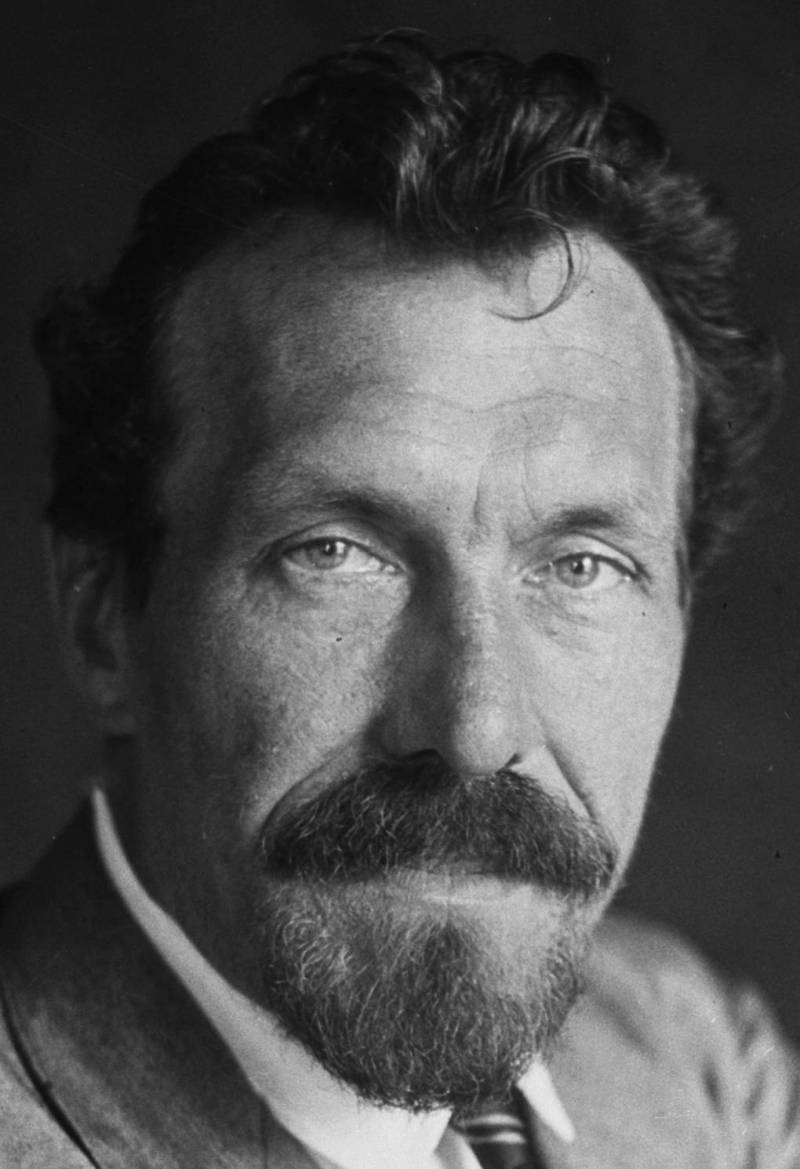
A. Rykov was listed in the RVSR for a very short time - less than two months, although he was introduced there after a kind of purge, when eight of its members were either reduced or fired at once. The notorious collegiality of the RVSR demanded a majority on key issues, but when so many members were at the front, this caused unexpected conflicts.
However, this is not about that here - Rykov, the first People's Commissar of Internal Affairs in the Council of People's Commissars, headed by Lenin, studied at the same Kazan University, and also as a lawyer. His purely revolutionary combat experience began during the May Day demonstration in 1902, when he was severely beaten by the gendarmes.
He spent the years of the First World War in exile. Returning in February, he was immediately elected to the Moscow Soviet, worked in the All-Russian Central Executive Committee, participated in all congresses of Soviets. The appointment of Rykov as People's Commissar was almost as unexpected as later - and in the RVSR. But there he was listed, I repeat, not for long, leaving a memory of himself only in a large number of regulatory documents.
Leonid Petrovich Serebryakov
The presence of Leonid Serebryakov in the RVSR is confirmed only in the mentioned book edited by D.P. Nenarokov, but not in online sources or published documents. Nevertheless, in 1919 he headed the political department of the RVSR for almost six months.
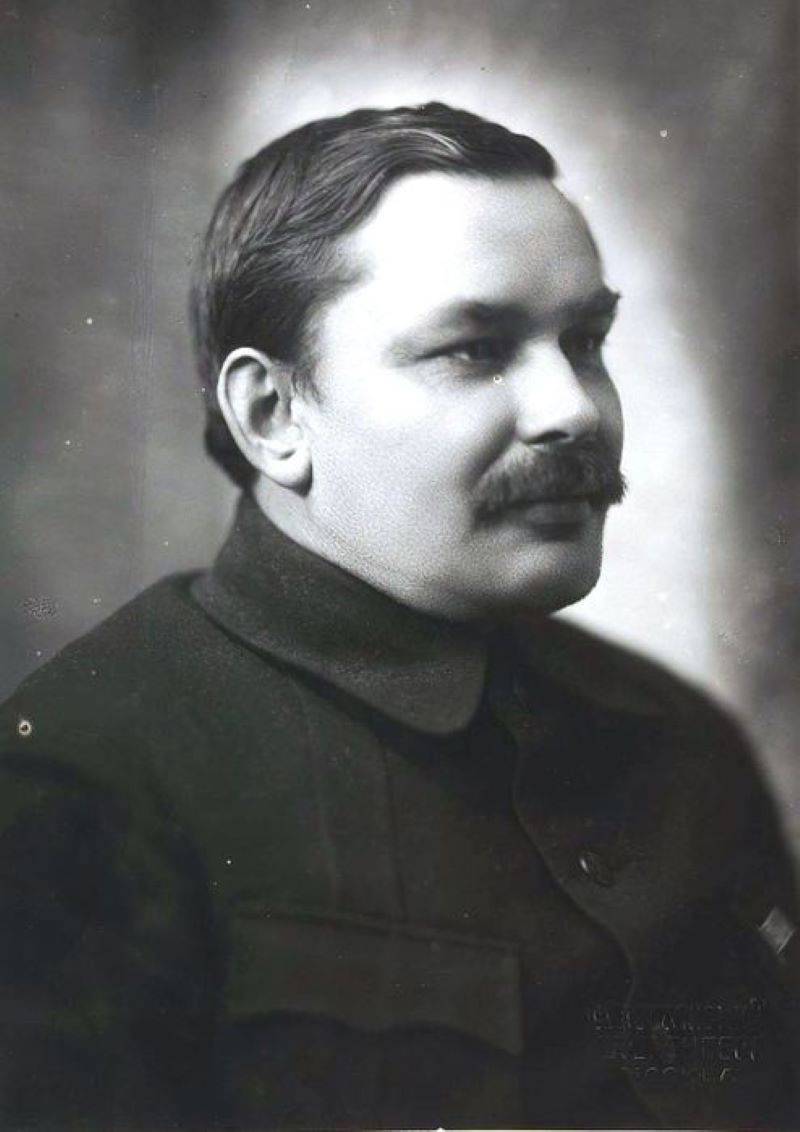
The participation of Serebryakov in the meetings of the RVSR - this main body of military control, can be judged from the verbatim reports. I’ll note right away that the participation is not the most significant, but for the sake of justice and for the sake of statistics I will inform you that L. Serebryakov did not have any diploma, which at that time did not really bother anyone.
L. Serebryakov graduated only from the primary city school, but the Bolsheviks were quite satisfied with his high level of self-education, and the fact that he, drafted into the army quite late - in 1917, managed to make a whole regiment - the Kostroma Reserve - revolutionary. We will consider this as the presence of combat experience.
Ivar Tenisovich Smilga
Ivar Smilga was the son of a Latvian forester, who was shot by the tsarist punishers in front of his relatives. By the revolution of 1917, Smilga was not yet 25 years old, but he was already considered an experienced revolutionary. In the RSDLP from the age of 14, he studied at a real school and at the law faculty of Moscow State University, although he was formally enrolled at Shanyavsky University (only a little over a year).
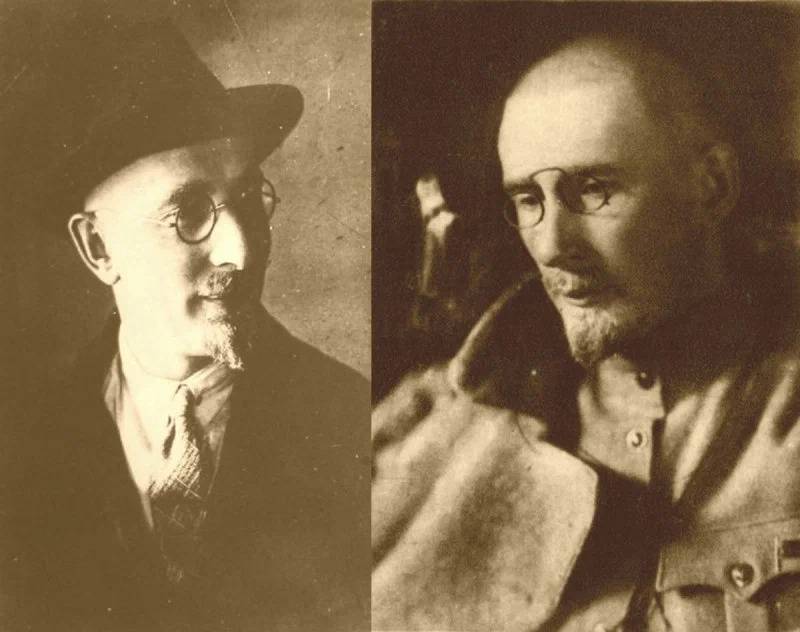
After the exile, I. Smilga conducted revolutionary work in Finland, from where in October 1917 he transferred reliable revolutionary units to help Petrograd. He was a representative of the republic in Finland, but after the defeat of the Bolsheviks there, he became a member of the Revolutionary Military Council of several fronts at once. I. Smilga was a member of the Revolutionary Military Council of the Republic throughout the Civil War, and was responsible there mainly for working with commissars of all levels.
Ivan Nikitich Smirnov
A native of a family of poor Ryazan peasants, he graduated from the City School in Moscow, Ivan Smirnov joined the Social Democrats back in 1899, and from 1903 did not leave the Bolshevik faction. He did not count seven arrests, six years in prison and four years of exile, as well as underground work, strike battles, and the organization of Red Guard detachments.
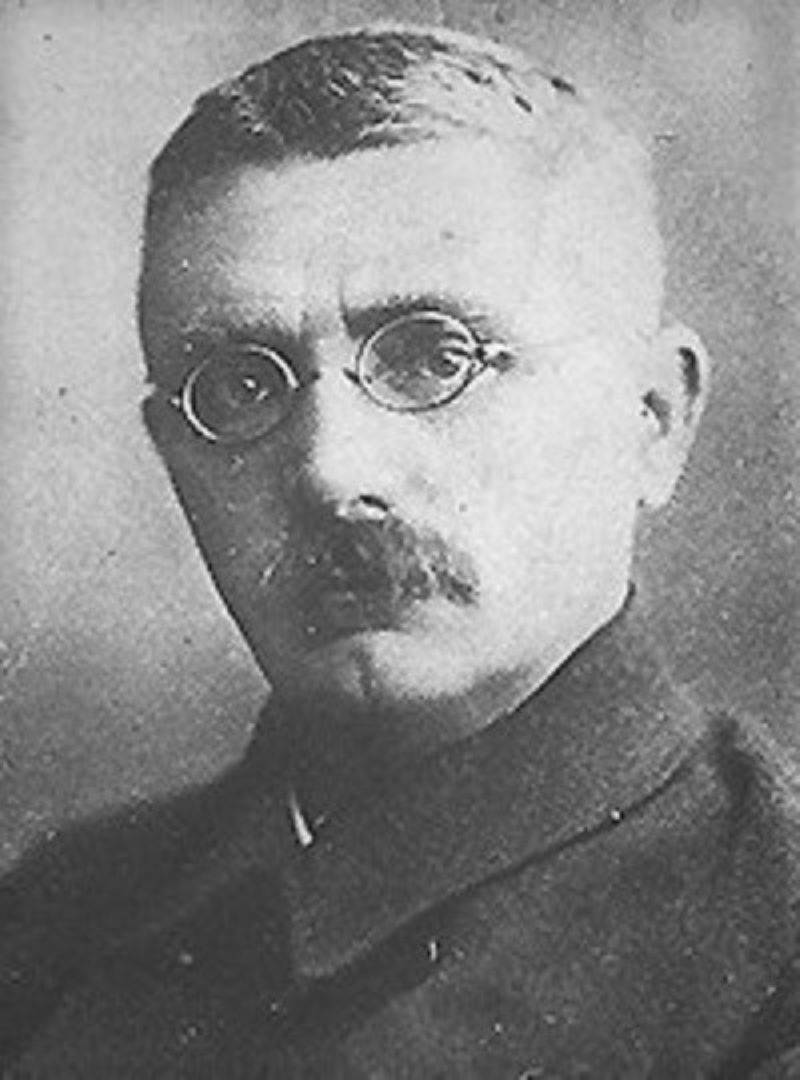
I. Smirnov received rare compliments from the People's Commissar of the Navy and Chairman of the Revolutionary Military Council Trotsky for participating in the battles for Kazan in August 1918. He became a member of the Revolutionary Military Council of the Republic, one of his workhorses. Despite the obligation to travel around the fronts, he showed perhaps the most stable participation in the meetings of the RVSR and its current work.
Most likely, it was I. Smirnov, along with Trotsky's deputy Ephraim Sklyansky, who became the very cog that ensured the smooth functioning and effectiveness of the RVSR. It was Ivan Nikitich Smirnov who was called the “Siberian Lenin” when he headed Sibrevkom for two years.
Joseph Vissarionovich Stalin
Joseph Dzhugashvili, even then invariably Stalin, in the role of an ordinary member of the RVSR during the Civil War, showed himself exactly as representatives of the Headquarters of the Supreme High Command acted during the Great Patriotic War. Much more is known about his education than about combat experience.
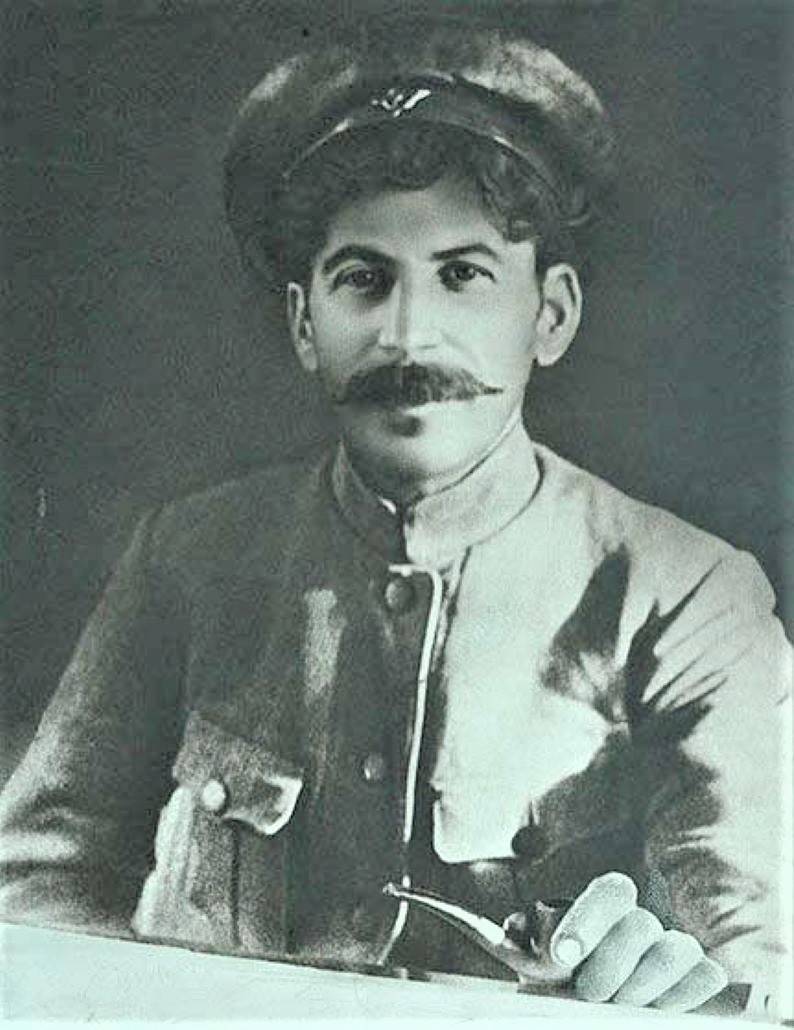
Joseph Dzhugashvili graduated from the Orthodox Theological School in his native Gori and completed almost the full course of the Tiflis Theological Seminary, leaving it shortly before the final exams. But Stalin's combat experience is, of course, a topic for a separate study.
Here I will confine myself to stating that the organization of revolutionary “exes”, of which Joseph Dzhugashvili did not have as many as it is believed, is not much inferior in complexity to large military operations. No one, including Chairman Trotsky, had any doubts about Stalin's appointment to the RVSR.
Lenin more than once called I. Stalin his own broom and even a mop in the RVSR, which, of course, could not help but irritate Trotsky. It is noteworthy that Stalin had working relations with almost all members of the RVSR, and he considered the purge of the Revolutionary Military Council in July 1919 a serious mistake.
In the RVSR, as a collegiate body, a lot of things were decided by voting, and a majority of all members was often required. And if the large Council was characterized by difficulties with efficiency, then the small composition almost turned into the fiefdom of Trotsky, where there was no place for scrupulous analysis, broad discussion and debate.
I. Stalin turned out to be the only member of the RVSR who was returned to its composition already in May 1920. Only a year later, S. Gusev was reinstated in the RVSR, who, however, did not fall under the July purge. A. Antonov-Ovseenko and A. Rozengolts also returned to the council, but much later.
Ilya Konstantinovich Yurenev
Ilya Yurenev - such a pseudonym was adopted by Konstantin Konstantinovich Krotovsky, the son of a railway watchman from Dvinsk, who graduated from a real school there. He went to his first link at the age of 20. Returning from there, he wrote a lot in Pravda and the Enlightenment magazine.
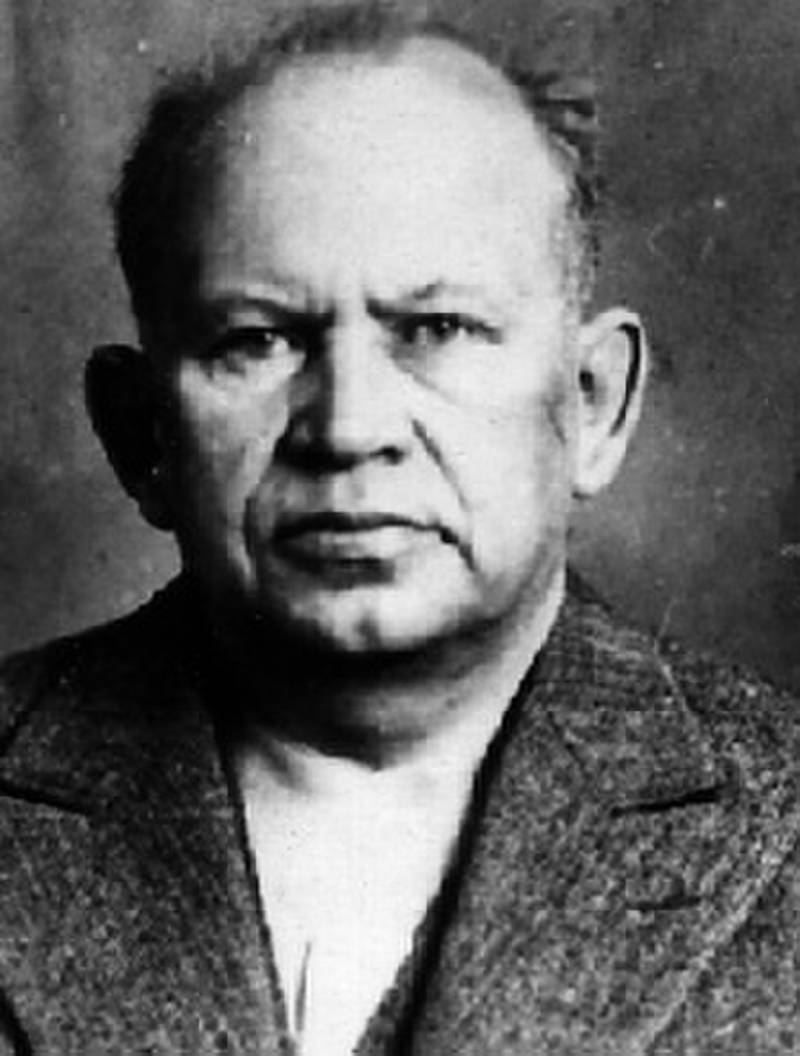
Instead of the Bolsheviks, I. Yurenev joined the “mezhrayontsy”, whom Trotsky himself would actually bring into the RSDLP (b) in the revolutionary 1917. Yurenev evaded the call to the world war, but for some reason he was acquitted in court - for lack of evidence. His revolutionary career was, one might say, ordinary - the Petrograd Soviet, congresses, membership in the Military Revolutionary Committee, but the main thing is that before that Yurenev was the chairman of the bureau of the General Staff of the Red Guard in Petrograd.
It was from these people, who were also well known to the People's Commissar of the Navy and Chairman Trotsky, that the Revolutionary Military Councils of the armies of the fronts and the entire Republic of Soviets were formed. I. Yurenev is another workhorse in its composition, with parallel membership in the RVS of the Eastern and Southwestern fronts.
RVSR - such is the statistics
Let us sum up the brief statistical results of our study, which will surely seem somewhat superficial to many. So, among the 23 members of the RVSR during the Civil War, only three had a higher military education, although V. Antonov Ovseenko, who graduated from the St. Petersburg Infantry School, can be added to them, albeit with a stretch.
Higher education, although not always confirmed by a diploma (the case of Stalin), was in 12 people from the RVSR. It is interesting to note that law graduates have been quite successful in collaborating on the board with those who graduated from commercial and technological universities.
Finally, six more members of the RVSR had an education at the secondary or secondary technical level, and only one had an elementary education. There were definitely no completely uneducated in its composition.
The educational level of the members of the RVSR was significantly higher than the real combat experience, which one way or another, sometimes with a stretch, could only boast of seven. However, practically everyone had a revolutionary experience of strikes, battles on the barricades, etc. among the rest.
Based on the results of the Civil War, we have to admit that the red RVSR, which consisted mainly of professional revolutionaries, although in the majority - amateurs in military affairs, as a governing body showed itself, if not better, then certainly more effective than the headquarters and numerous rates of the whites .
Apparently, in those unique conditions, the ability to think and act not according to a pattern, but systematically and creatively, turned out to be much more important than a rapidly outdated set of purely specialized knowledge and skills. No less, more precisely, even more importantly, the RVSR relied on highly professional middle management.
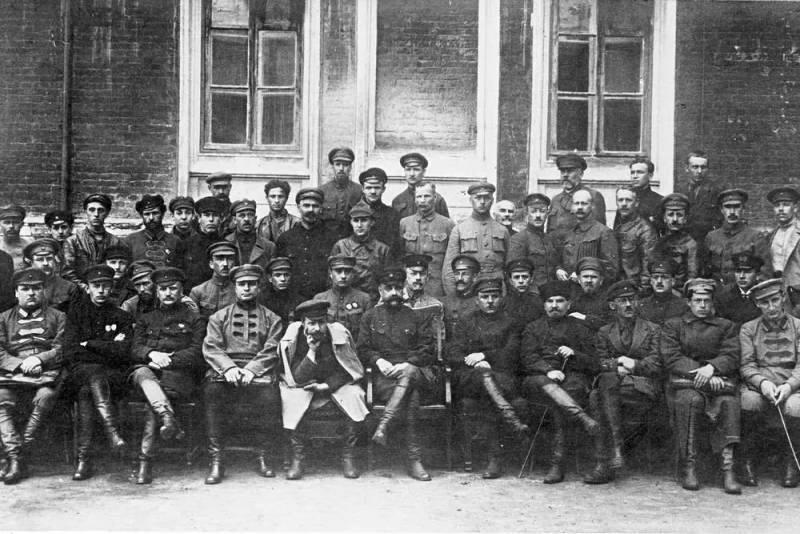
This refers not only to the field headquarters of the RVSR, but also to the headquarters of the fronts and armies, almost completely staffed by regular officers. It is impossible not to quote here one of the comments to the second of the articles on the Revolutionary Military Council of the Republic of Soviets:
... In military terms, the Red Army was more professional than its opponents, the result is appropriate.”
The commentator refers to the notorious Bushkov, who is still an authority, however, the data of A. G. Kavtaradze mentioned by the author do not differ much from such an assessment.
Information